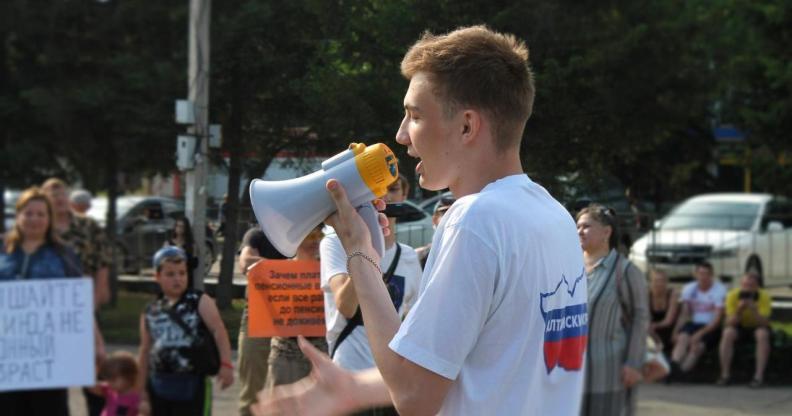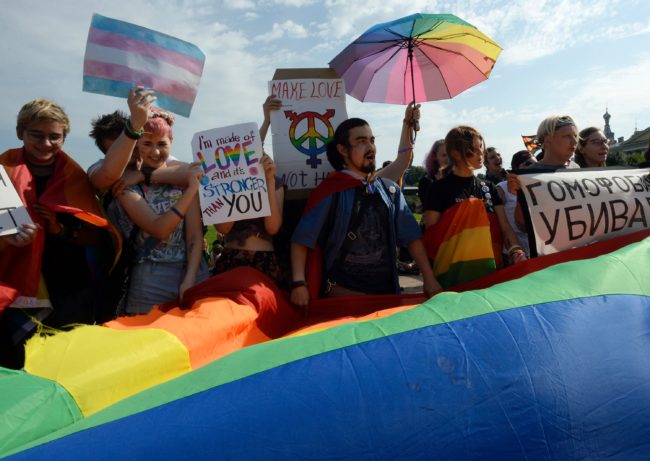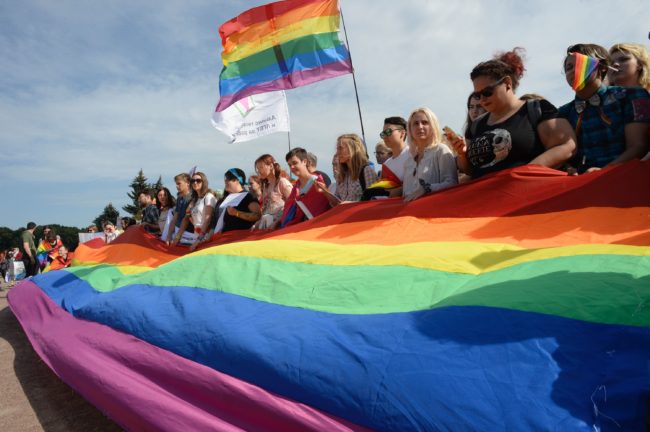Russian teenager prosecuted under ‘gay propaganda’ law has conviction overturned

Maxim Neverov was prosecuted under the country’s anti-gay propaganda law (Russian LGBT Network)
A 16-year-old from Russia, who was found guilty in August under the country’s “gay propaganda” law for posting pictures of men online, has had his conviction overturned.
Maxim Neverov, a schoolboy from Biysk, filed an appeal with his lawyer, Artem Lapov, after the Commission on Minors and the Protection of Minors’ Rights decided he should pay for the content he posted online.

OLGA MALTSEVA/AFP/Getty
He was convicted under Russia’s controversial “gay propaganda” law, which was introduced in 2013. The stated purpose of the law is to protect children from being exposed to “homonormativity.”
After Neverov was convicted in August, his lawyer told Reuters that he would not be paying the fine or accepting the conviction and that they would appeal the decision.
The Russian LGBT Network has suggested that Neverov could have been targeted because he took part in a highly public protest called “Gays or Putin” in May.
The performance was discussed in the Russian federal legislative assembly, known as the Duma.
Neverov had previously submitted 12 applications for permission for the performance, and he was refused a permit. The teen also attempted to organise a local pride parade.
According to the network, in the teenager’s case materials there was a document which reported that there was a public outcry over the pride parade.
Lapov, the boy’s lawyer, said he was glad justice had triumphed.
“The court scrupulously studied the evidence. All related materials were considered in details and the witnesses were interviewed.
“The investigators requested data from the social network VKontakte. The court followed the assumption of innocence principle and decided that the offence was not proved.

(OLGA MALTSEVA/AFP/Getty Images)
“Based on that, our complaints were satisfied and the decision of the Commission on Minors and the Protection of Minors’ Rights was abolished,” he added.
Hate crimes against LGBT+ people have doubled in the country since the law was passed.
In August, police detained around 30 LGBT+ activists in St Petersburg.
A total of about 60 campaigners assembled in Palace Square after their request for a pride parade was turned down by local authorities.
The incident appeared to confirm fears voiced by LGBT+ people in Russia during the World Cup during the summer, that the relaxed policing towards the community would end after the competition, which finished on July 15.

